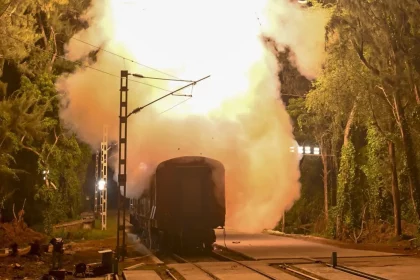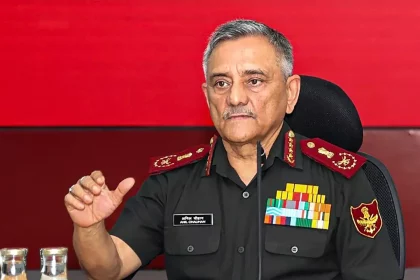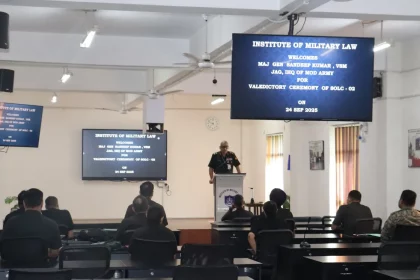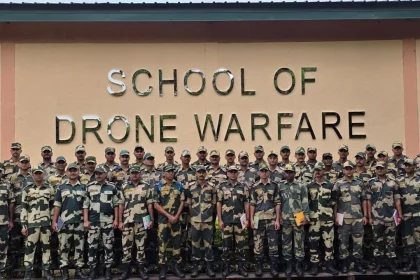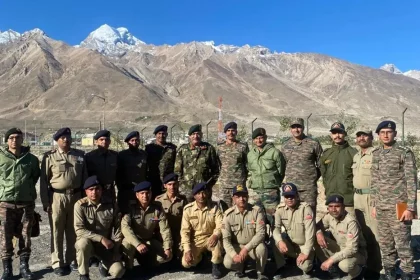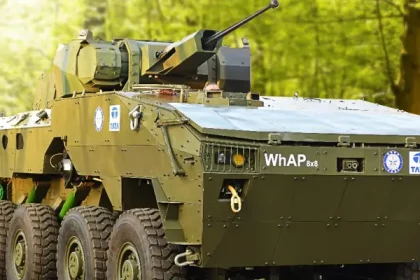India Successfully Test-Fires Agni-Prime Missile from Rail-Based Mobile Launcher
This development aligns with India's broader efforts under the Atmanirbhar Bharat initiative to strengthen its missile arsenal, which includes variants…
Centre Extends Tenure of CDS General Anil Chauhan Till May 2026
Extension to Provide Continuity in Military Reforms, Jointness, and Strategic Preparedness Across Armed Forces.
Institute of Military Law Concludes Second Senior Officers Law Course
Advanced Military Law Training Strengthens JAG Officers’ Leadership and Legal Acumen.
First Batch of BSF’s School of Drone Warfare Trains to Graduate Soon
Inaugural batch of 42 officers trained in advanced UAV operations to boost border security and counter emerging aerial threats.
Maj Gen Pankaj Malhotra Visits 13 BRTF, Praises BRO’s Role in Nation-Building in Ladakh
BRO’s Project Yojak Strengthens Strategic Roads and Socio-Economic Growth in Ladakh.
Tata Advanced Systems Opens India’s First Overseas Defence Manufacturing Unit in Morocco
Morocco facility marks Tata’s global foray as India boosts defence exports and strategic ties abroad.

